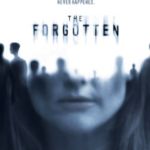Equilibrium (2002)
In a post-nuclear-war and not-too-distant future, the totalitarian regime that runs the metropolis of Libria and its environs has its enforcers shoot you on sight, or capture you for later execution by incineration, for having…feelings. Yes: You get the death penalty for having emotions – and for possessing anything that prompts them, such as paintings, books and music. Why? Because Libria’s dictator says mankind’s capacity to feel is what caused humans to indulge in nuking each other in the past, and such death and destruction mustn’t happen ever again.
But how to suppress human emotions? Simple: Make everyone take – or else! – daily injections of Prozium II, a mega-powerful drug that leaves you functional but without feelings. And reinforce the dictatorship’s draconian level of coercion with constant propaganda broadcasts in which the benign-appearing tyrant praises the drug and the regimented and servile life that is its inevitable result.

Not everyone submits, though, as you might guess. Some individuals refuse to live as slaves to an irrational, dehumanizing and collectivist government – and some of these noble souls fight back and defend their lives, their human nature, and civilization’s cultural heritage. In the somewhat comparable Fahrenheit 451 (1966), such people rebelled by fleeing to a haven outside their book-burning tyranny’s reach; in this movie, the rebels have automatic weapons and lots of ammunition, and they stay put.
Along its way, the film incoherently and peculiarly borrows certain symbolism and terminology from Christianity and Judaism. Though the dictatorship is not religious in any sense, its symbol is a cross – one that has crossbars at all four ends and resembles the cross potent and the Jerusalem cross of the Crusaders. The dictator is called “Father,” and characters speak of “the Father’s will.” The ruling body that “Father” heads, the Tetragrammaton Council, gets its name from Scripture’s YHVH, the four-letter name of the Almighty. And the regime’s merciless top enforcers are called the Grammaton Clerics.
One of these Grammaton Clerics, John Preston (Christian Bale), is the film’s protagonist, although he doesn’t become a hero for a while. Along with Errol Partridge (Sean Bean), his partner, Preston leads to-the-death raids against rebels and other “sense offenders.” As in Fahrenheit 451, minions (no, not that kind) in fireproof suits turn flamethrowers on contraband cultural treasures the (slain) rebels have preserved. (Wait till you see which irreplaceable painting Preston orders torched.)

It’s a shocking revelation of Prozium’s immense capacity to deaden all human emotion when Preston tells DuPont (Angus Macfadyen), the deputy to “Father,” that he didn’t feel anything four years ago when enforcers burst into his apartment, arrested his wife Viviana (Alexa Summer) as a sense offender – “Comply! Comply!” they yelled at her – and hustled her away to be sentenced to incineration. She broke away from her captors to embrace and kiss her husband for the last time and to exclaim, “Remember me!” This was in front of their two children.
Preston is emotionless, too, in the present, when he kills his partner. He’s found Partridge sitting in a derelict church and reading a rescued book of Yeats’s poetry. Reciting the last line of “Aedh Wishes for the Cloths of Heaven,” Partridge is fingering his sidearm as he intones, “Tread softly because you tread on my dreams.” The fatal shot from Preston pierces the poetry book before striking Partridge.
Things start to change for Preston one day when he skips his dose of Prozium because the vial has shattered. Soon he unaccountably spares “offender” Mary O’Brien (Emily Watson) from on-the-spot execution, but she is arrested and faces death. During interrogation she asks him why he is alive, and he fumblingly says his purpose in life is to serve “this great society.” She says to feel is as vital as breath. He says he must remand her for “processing,” and she retorts, “You mean eecution, don’t you?”
Preston skips more drug doses and begins to experience feelings, even after a broadcast from “Father” says people must “shrug off individuality” and replace it with “sameness and unity” so everyone will “lead identical lives.” Preston’s new partner, Brandt (Taye Diggs), is wondering about him. During a terribly high-body-count raid on a rebel hideout, a dying, bleeding rebel who has grabbed Preston sparks his conscience by wordlessly looking him in the eye.
Finding an antique record player in a rebel cubbyhole, Preston is moved to tears by the beauty of Beethoven’s Ninth. Things now accelerate. Before long, Preston puts his skill in Gun Kata, a Matrix-like martial art made up for this film, to use in killing some enforcers. On a visit to a morgue to apologize to the dead Partridge for killing him, Preston searches his late partner’s evidence file and finds a photo of Partridge and Mary O’Brien together, with the word “Freedom” on the reverse in Partridge’s handwriting.
Preston now contacts rebel leader Jurgen (William Fichtner), who urges him to assassinate “Father.” Jurgen predicts that after the tyrant is gone, “our cause will be won by human nature itself.” Preston meets Mary for the last time before her scheduled execution. From her evidence file he has taken a ribbon with her scent upon it. He has a flashback to his wife’s execution, at which he remembers he was present. After that he tries to prevent Mary’s death but is unsuccessful.
SPOILER ALERT: After this tragedy, events progress into a grim, but just, protracted finale in which Gun Kata expert Preston makes sure, spectacularly, that the good guys win. Preston has gone from Saul the persecutor to, more or less, the righteous Paul. And at the last, Mary’s ribbon is in his hand.
Among the lessons we can draw from the film: The regime claims murder and war exist no more, even as it murders “offenders” and makes war upon human nature itself via its unnatural drug regimen. To frustrate human nature is to play God, and that spells disaster, as the Western world’s birth dearth from artificial contraceptives and abortions is proving more and more every day.
The film’s MPAA rating is R for violence. The body count is extreme, although only twice is blood shown. There is a horrific fatal sword wounding. God’s name is taken in vain once and there are some expletives. An Ingres figure painting appears at the movie’s start. Kurt Wimmer directed the film and wrote the script. Klaus Badelt was the composer and Dion Beebe the cinematographer.
— Dan Engler













